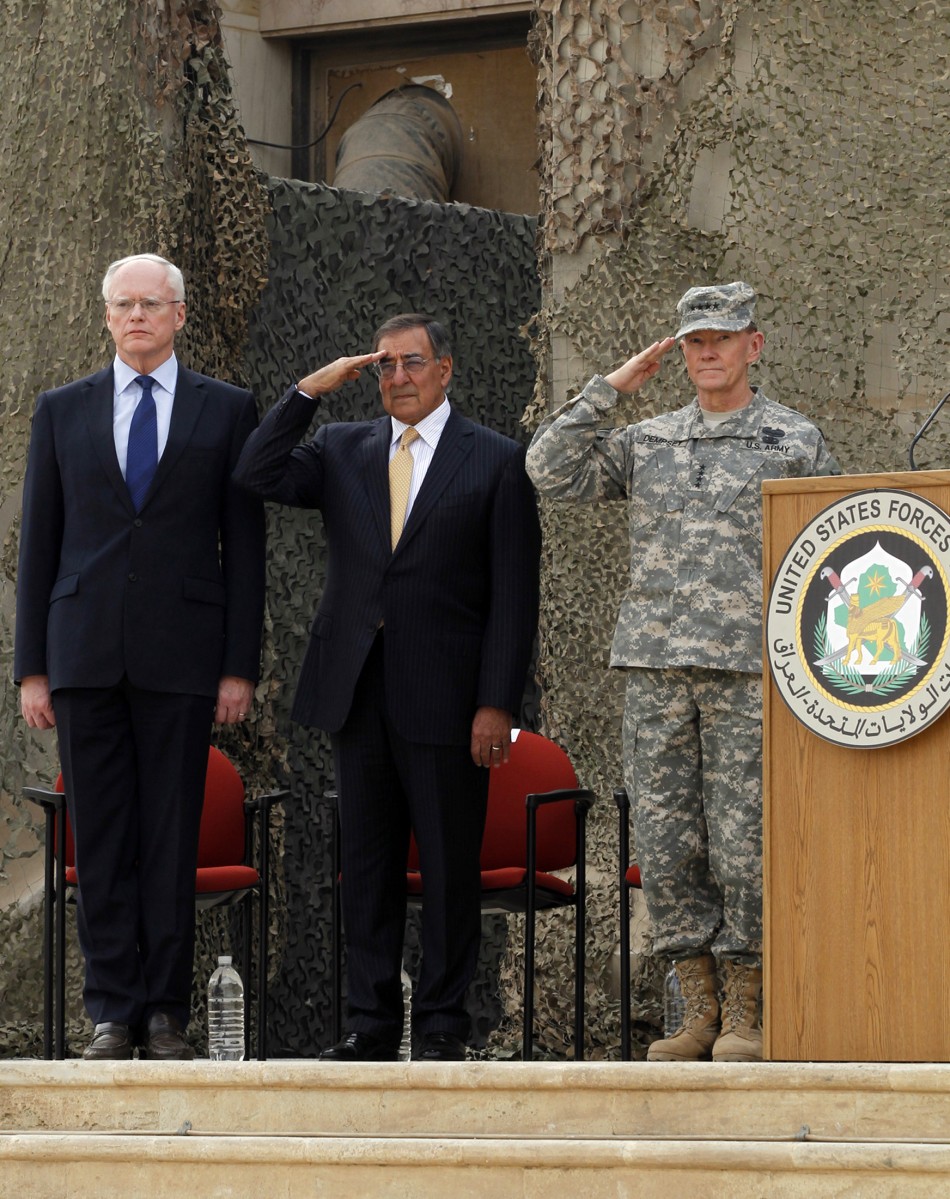What’s Next for Iraq after the U.S. Withdrawal?


December 2011 officially marks the full withdrawal of US troops from Iraq, but with a divided political landscape, an increasing insurgency attack and the Syrian crisis still threatening to spread, the country's future is still uncertain.
The full withdrawal of US troops was marked with a ceremony in Iraq.
Leon Panetta, the US defence secretary, paid tribute to the troops who fought there and insisted there had been "remarkable progress" in the country.
The US invaded Iraq in March 2003, Saddam Hussein was overthrown but after a devastating war and the complete collapsed of the regime, army and institutions, state building has proven very difficult.
Despite US-led programmes, training and money, eight years after the American-led invasion, the country is still far from unified.
Sectarian divisions and insurgency attacks still threaten the country's future.
The country was ruled by its Sunni minority for almost 80 years and the collapse of the Hussein regime led to a surge of sectarian violence that peaked between 2006 and 2007, killng tens of thousands.
The political reconstruction has since proved difficult.
Iraq's political system is also still divided along ethnic and sectarian lines. While at least the country managed to hold free and fair elections and engineer a peaceful transition to power, stability is still fragile.
In the last two governments high level positions have been distributed among different political factions but many still use sectarian demands as a way to mobilize popular support.
In 2010 leaders agreed to form a government of national unity. Jala Talabani, a Kurd would retain the presidency, Nouri al-Maliki, a Shiite, would remain prime minister and Osama al-Nujaifi, a Sunni, was named speaker.
The problem however is that most of the political factions compete for authority in the emerging system, while being supported by regional powers that are also competing for influence.
Nouri al Maliki, for example, is far from being a straightforward political character.
While he has happily cooperated with the US since the invasion, he was the former leader of the islamist Dawa party, which fought to overthrow Saddam Hussein but which also has strong ties with Iran and Syria.
He was allegedly linked to an Iran-backed group of conspirators that hijacked the TWA Flight 849 in 1985.
The DAWA party was also involved in the bombing of the US Embassy in Kuwait in 1983.
One of his close allies is also Iraqi "Shiite" leader and cleric Moqtada al-Sadr.
Sadr is fiercely anti-American and is a largely popular figure in Iraq. While praising the Syrian revolutionary he recently said President Bashar al-Assad should stay in power because he "opposes the American and Israeli presence, and his positions are clear unlike those who have fallen before him, or who will fall soon".
In November Sadr was also accused of sending troops loyalists to him in Syria in support of Assad and his regime.
The situation in Syria has also affected Iraq as while the Sunnis have accused the Shias of supporting the Assad regime, Shias have also accused the Sunni of joining the Free Syrian Army, an armed opposition group fighting the state security forces.
After eight years of US troops presence Iraq has turned from a dictatorship to a nascent democracy but sectarian violence is still threatening to disrupt the fragile political consensus, that had until now been mainly uphold by US support.
Iraq is a troubled country in a troubled region where the balance of power in changing. However finally free from decades of dictatorship Iraqis can now vote for their political leaders and are determined to have their grievances heard and answered.
© Copyright IBTimes 2025. All rights reserved.





















